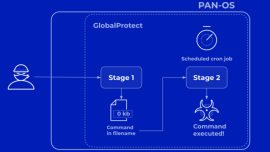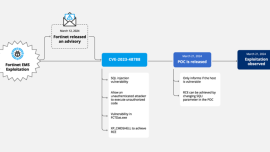
Research from the IBM Institute for Business Value (IBM IBV) reveals a striking fact: organizations equipped with advanced security capabilities boast a remarkable 43% higher revenue growth over a five-year period compared to their peers.
However, when data falls into the wrong hands or is compromised by cyberattacks, it can wreak havoc. In 2022, the average cost of a data breach for U.S. organizations hovered around a staggering $10 million. Such incidents not only disrupt operations but also shatter trust, hindering business growth and inflating expenses.
How do businesses enhance operational efficiency through data security?
1. Building a robust security foundation
This involves establishing strong security measures to ensure that data is protected comprehensively, both internally and externally. It includes implementing protocols and procedures to safeguard data at every level of the organization’s infrastructure.
Key components may include implementing access controls, encryption protocols, regular security audits, and adopting best practices in data handling and storage.
2. Enhancing awareness and training:
This aspect focuses on educating employees about the importance of information security and providing them with the necessary training to handle data securely.
Activities may include conducting regular security awareness programs, workshops, and simulations of potential security threats to sensitize employees about cybersecurity risks.
Employees should be trained on recognizing phishing attempts, using strong passwords, handling sensitive data, and adhering to security policies and procedures.
3. Utilizing advanced security technology:
Organizations employ cutting-edge security technologies to fortify their defenses against cyber threats and ensure the integrity and confidentiality of their data.
This includes deploying intrusion detection and prevention systems (IDPS), firewalls, endpoint protection solutions, security information and event management (SIEM) systems, and data loss prevention (DLP) tools.
Advanced security technologies also encompass the use of artificial intelligence (AI) and machine learning (ML) algorithms to detect and mitigate security breaches in real-time, as well as implementing secure coding practices and adopting secure software development lifecycles (SDLC).
In conclusion, data security isn’t just a protective measure—it’s a catalyst for innovation and growth. By prioritizing secure data practices, businesses can build trust, seize opportunities, and thrive in the digital era.
Data security through VNCS Global’s cybersecurity services
Penetration Testing service:
Penetration testing simulates a real cyber-attack with the purpose of testing an environment’s cybersecurity posture. At its most basic, a successful pen test will prove how genuine the vulnerabilities in your infrastructure may be by determining if a threat actor can get through.
Our penetration testing goes much further than a typical vulnerability scan, utilising advanced manual techniques to further investigate and eliminate the false positives that are common within an automated scan.
SOC service:
VNCS Global provides the concept of a SOC-as-a-Service, our cloud-based SOC, to give our clients a true partner and help fill a gap within IT security. We provide continuous detection, protection and response for organizations that do not have the resources for a 24/7 in-house staff. Our team provides around-the-clock event monitoring and incident management from our global network of SOCs and actionable notifications for any suspected incident. Our security experts use industry leading SIEMs and automated response capabilities so you can address critical security and compliance needs, reduce the risk of a data breach and lower your operational costs.




